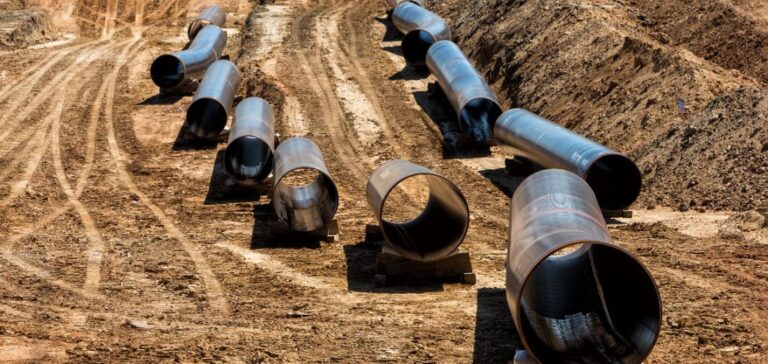The East African Crude Oil Pipeline (EACOP) company has announced the completion of an initial tranche of external financing for the construction of the world’s longest heated oil pipeline, connecting western Uganda to Tanzania’s coastline. The development is part of a $10bn investment programme led by TotalEnergies, China National Offshore Oil Corporation (CNOOC), and the governments of Uganda and Tanzania.
The 1,443-kilometre pipeline is designed to transport crude oil extracted from the Lake Albert basin to the Indian Ocean. The plan also includes the drilling of over 400 oil wells in western Uganda. The programme is positioned as a strategic economic initiative for the involved parties, though it faces significant opposition due to its impact on ecologically sensitive areas.
Involved financial institutions
The first round of financing is supported by a consortium of institutions including the African Export–Import Bank (Afreximbank), South Africa’s Standard Bank, two Ugandan banks, and the Islamic Corporation for the Development of the Private Sector (ICD). EACOP welcomed the development, describing it as a key milestone in the project’s implementation.
In response, several civil society organisations have called on the banks to reconsider their involvement. Samuel Okulony, Executive Director of the Uganda-based Environment Governance Institute, said the financing decisions were “disappointing”, noting Uganda is already grappling with the consequences of climate change, citing recent floods in Kampala.
Legal and social opposition to the project
Ugandan lawyer Kato Tumusiime, who represents young activists jailed for protesting the project, has urged financial institutions to withdraw their support. Four of his clients remain in detention, facing public nuisance charges. He also condemned reported human rights abuses in areas affected by the pipeline, including incidents of violence and intimidation.
EACOP expressed “strong disagreement” with these allegations, while the Ugandan government referred to them as mere “allegations”. Despite the ongoing criticism, President Yoweri Museveni remains a staunch supporter of the project, describing it as vital for national economic development.






















